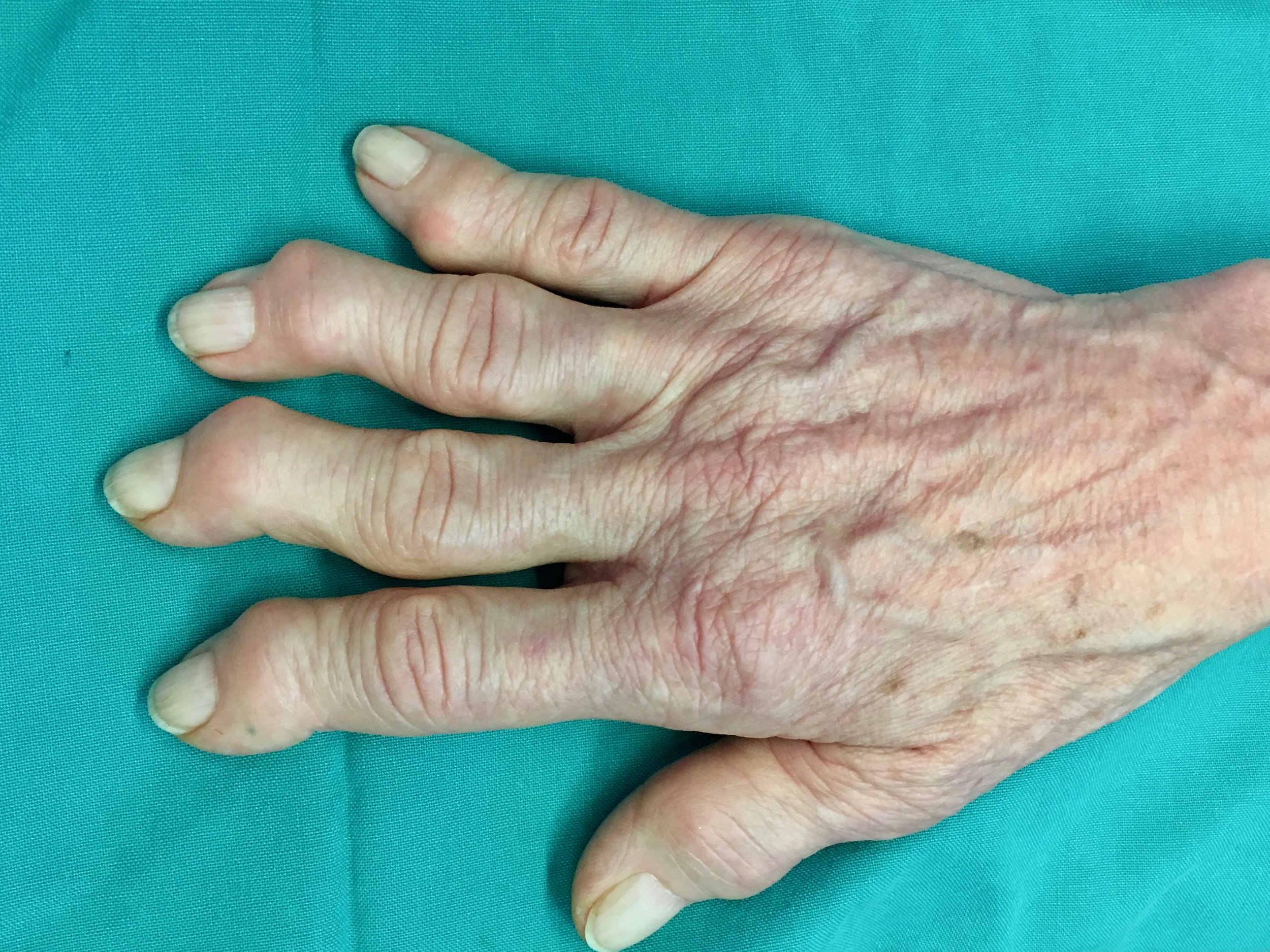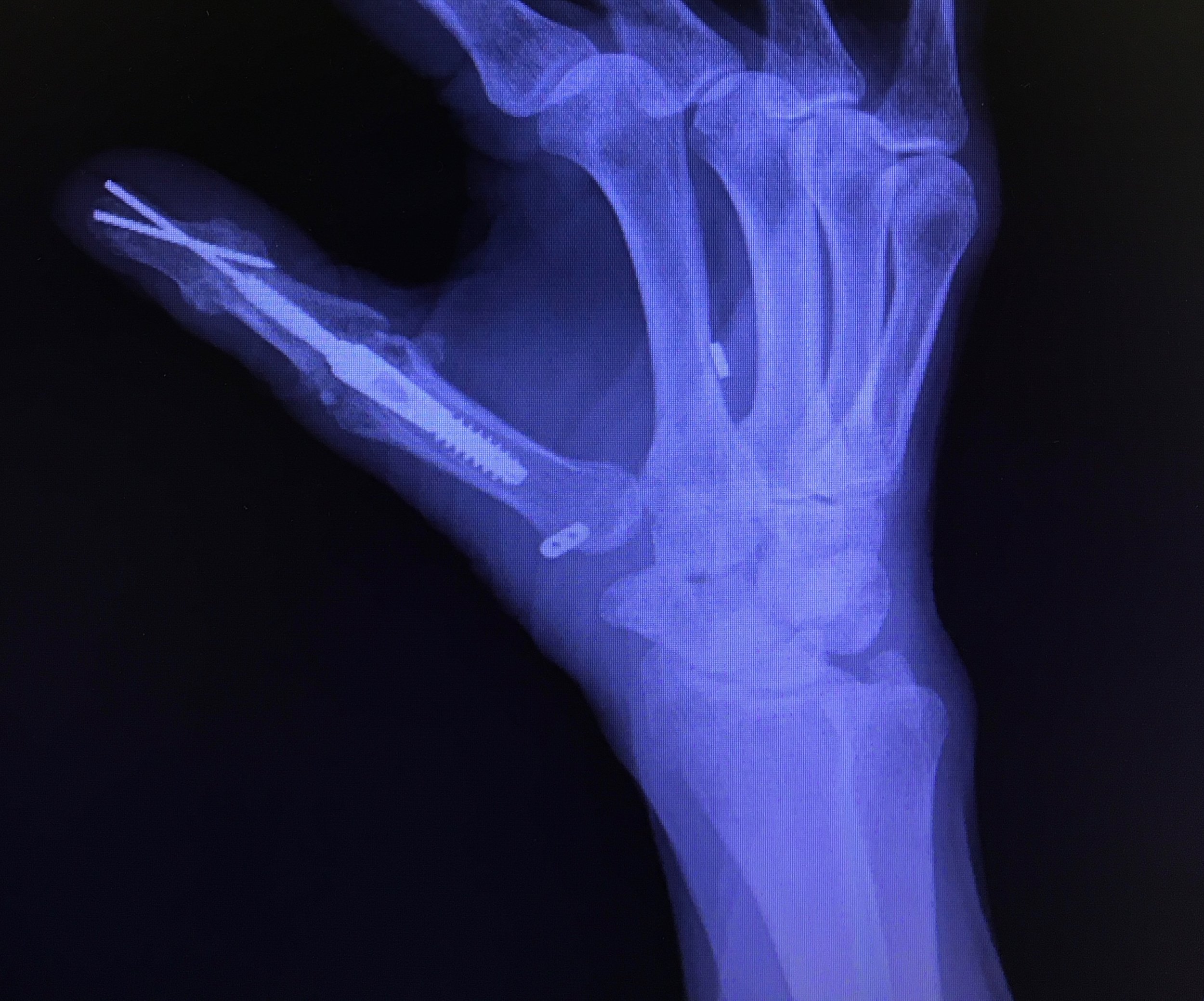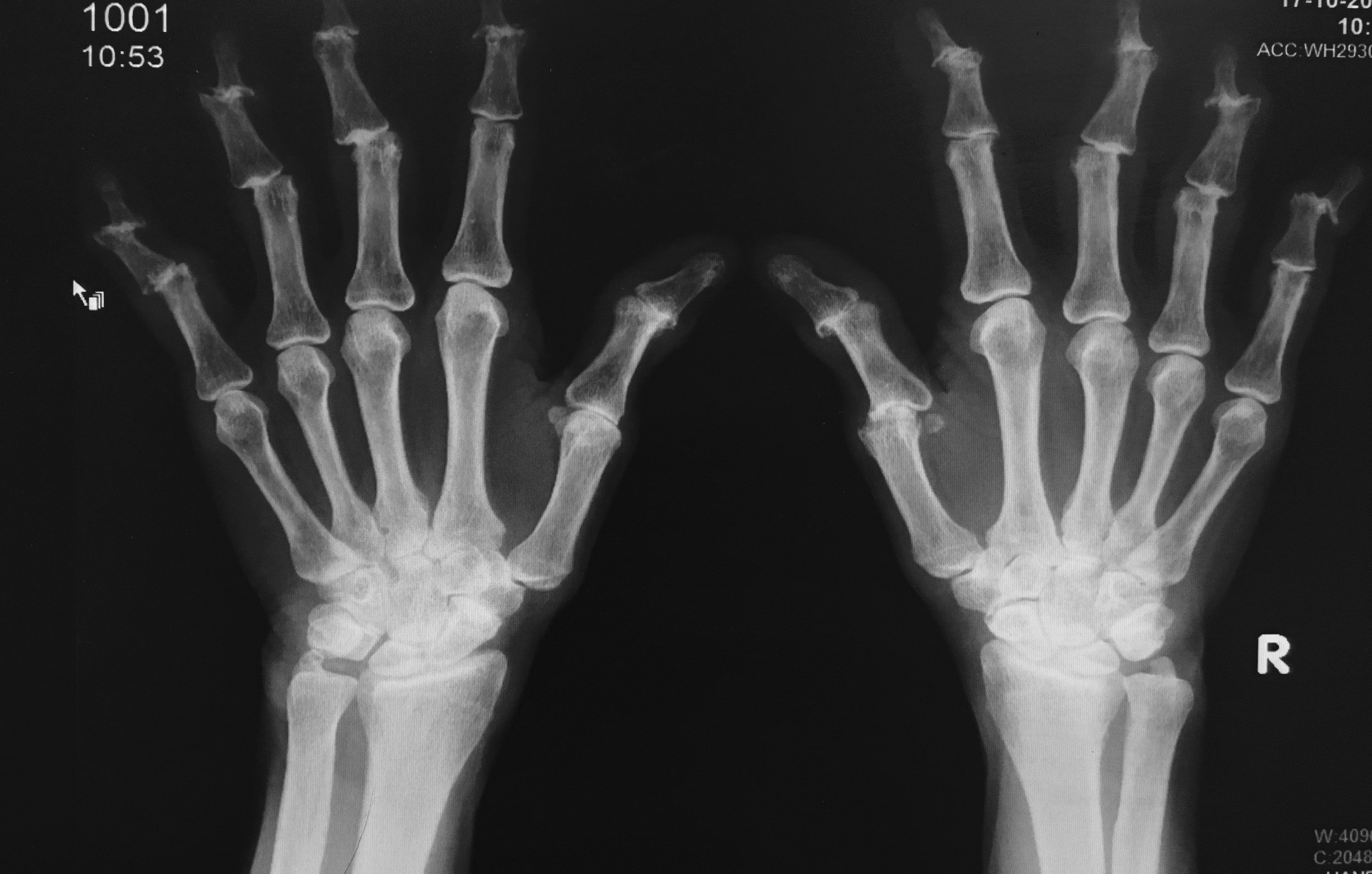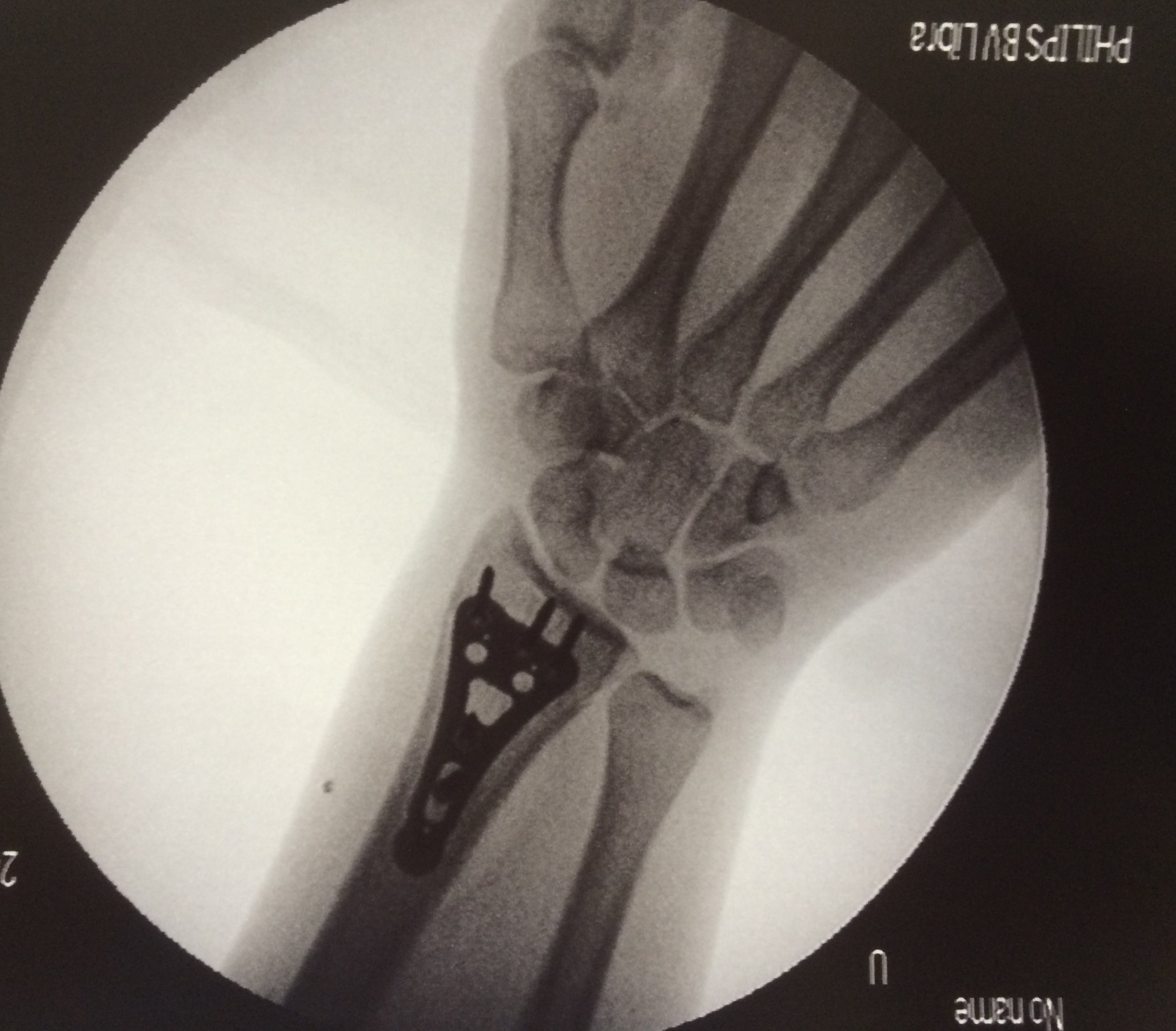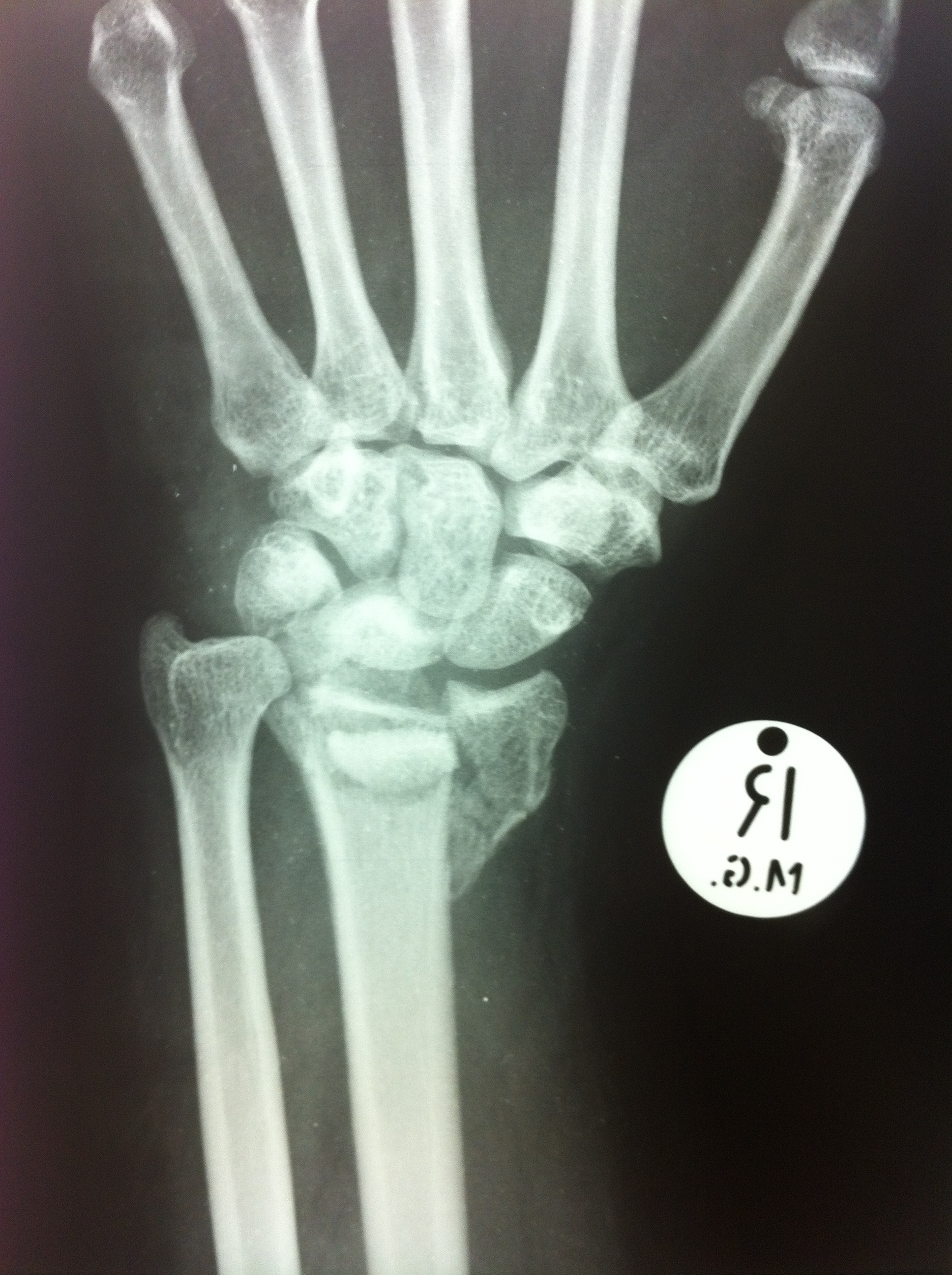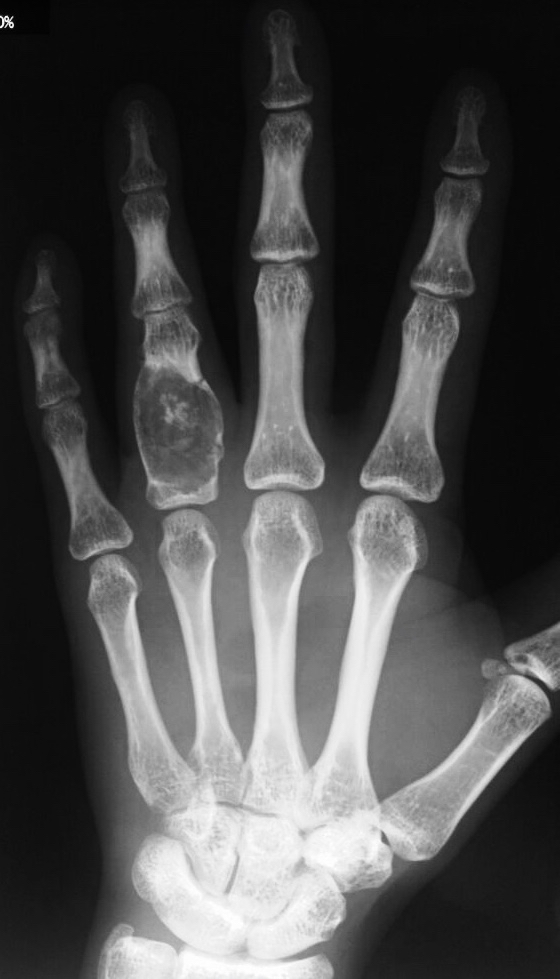Carpal Tunnel Syndrome (CTS)
This common condition is caused by compression of the Median Nerve in the Carpal Tunnel (located at the wrist).
Initially patients may complain of pain and numbness affecting the fingers at night. With worsening compression the numbness may become permanent and muscle wasting of the thumb/hand weakness may occur.
Mild CTS may be treated conservatively with splints and occupational therapy. If this fails the patient will need surgical release of the carpal tunnel and neurolysis (freeing up) of the nerve.
Following surgery the patient will need to be in a wrist splint for 2 weeks but normal activities can usually be resumed from 1-2 days after surgery.
Trigger Finger
Another common condition affecting the hand. This is caused by the tendons that bend the fingers to become stuck.
Initially patients present with pain over the base of the fingers. This progresses to catching or locking of the finger in a flexed position.
A cortisone injection is attempted to treat this condition. If surgical treatment is needed then a surgical release of the trigger and tendon is performed. Recovery is rapid (1-2 weeks).
DeQuervain’s Tenosynovitis
Inflammation of the tendons causing extension / straightening of the thumb is commonly experienced by pregnant women / mothers with newborn children. In addition patients that perform repetitive activities may also develop this condition.
Pain is felt at the base of the thumb especially when lifting loads.
Initial conservative treatment with a cortisone injection is attempted. Splinting of the thumb and physiotherapy may also help. If this fails surgical release of the tendons and debridement (removal) of the inflamed tissue is performed.
Ganglion/Mucoid Cyst
Fluid filled masses may develop on the back or front of the wrist. These are not cancers but out-pouchings that arise from the wrist joint. Small ganglions that are located near the nail of the finger are called mucoid cysts.
Ganglions/Mucoid Cysts are usually painless but may cause pain if associated with arthritis of compressing adjacent nerves.
Surgical excision is recommended.
Arthritis of the Hand
Both inflammatory arthritis (E.g. Rheumatoid Arthritis, Gout etc.) and degenerative arthritis (Osteoarthritis) commonly affect the hand. Patients with inflammatory arthritis may be referred to a Rheumatologist to help manage the disease before any surgery is necessary.
Pain and stiffness of the affected joint occurs. With advanced disease instability and deformity of the hand occurs. It may affect any joint of the hand, but commonly affects the base of the thumb and the last joint of the fingers.
If surgery is required, various procedures depending on the joint/symptoms may be performed. These range from cortisone injections anddeformity corrections to fusion of the joint or joint replacements.
Trauma
With increasing numbers of people getting involved in sporting activity there is an increase in traumatic conditions seen. Fractures of the fingers/hand are common as are dislocations and sprains of the joints.
Surgery may be required to fix the bones, reduce the dislocations or repair the ligament sprains.
